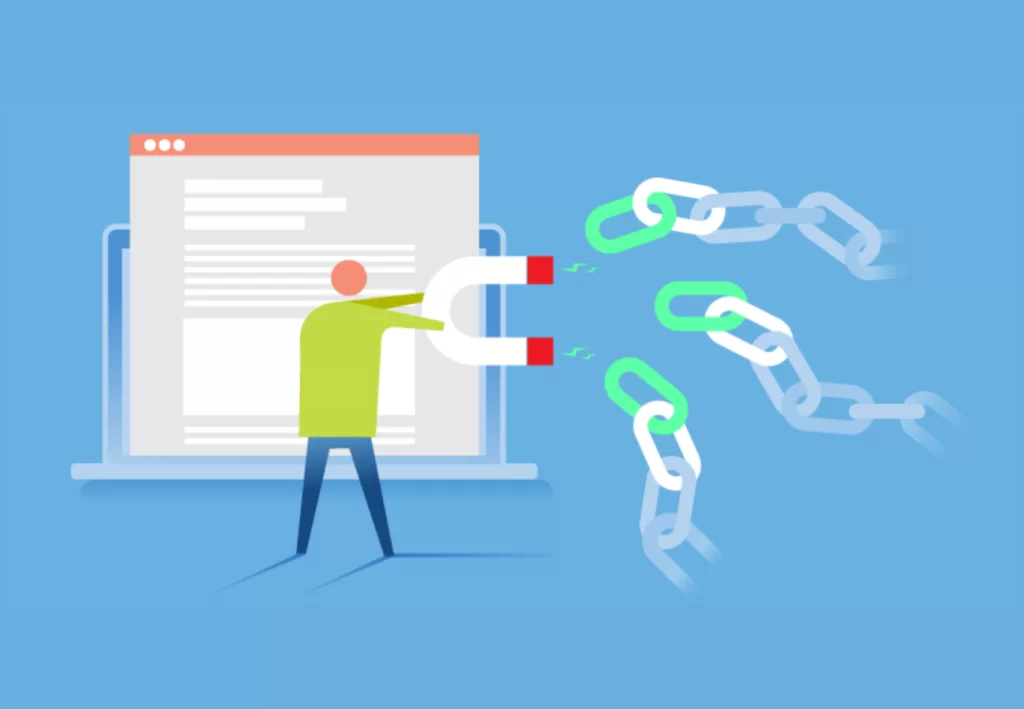A great and strategic CRM Automation can help in driving growth to your business. The more you try to automate, the most simplified it becomes, and you start to experience much more phenomenal growth than ever before. It helps your business with the ability to finish routine tasks, scale, and spend more resources on high-value work and strategizing.
So, what we have understood is that businesses that leverage the power of marketing automation experience the most profits. Businesses that automate always stay a step ahead of the competition. From reducing all the manual and tedious tasks, it helps you to streamline each and every activity that you rely on. In recent years, marketing automation has advanced.
From a fringe technology with early adopters for digital marketing success. ROI is very important for every business. It impacts the bottom line of every business. Marketing emerges as one of the most important departments for every business because it helps you to get more and more leads and registrations. The better branding you do, the better will be the marketing efforts.
And you get to enjoy more liberty in lead generation and quality. Generating leads, managing them, doing the lead nurturing, and sales closures are a long way, and each and every process involves proper planning of work from every stakeholder. It can be simplified with marketing automation. That said, let’s learn more about how you can benefit from CRM automation.
What Is Marketing And CRM Automation?
CRM, as we know, refers to Customer Relationship Management, and the automation of the process inside CRM is referred to as CRM Automation. On that note, a great CRM Strategy can include lead automation, lead scoring, and email marketing which involves the leads passing from one stage to another before getting into the sales automation stage.
Every stage can be configured with well-defined and streamlined process workflows that make the job much simpler. We know CRM software is used to store and manage the leads so that we can easily refer to and retrieve the information at any instant. Basically, today’s CRMs are much more advanced as it not only helps you to store the leads but is also used to track leads.
Then monitor them to define their behavioral patterns. It logs the website visits that the lead makes, the social media visits, signups, actions, reading and responding to your emails, and a lot more. The more activities they do pertaining to your brand means it defines the interest level of the lead, and you can pass it on to the sales immediately and get it closed at the earliest.
In some cases, we also know that not all leads through marketing get closed in a single shot. So, it is important to define a nurturing lead flow properly to get the leads to fall into it if it is not sales-ready at the moment. That can also be automated via lead nurturing and sales automation. Automation is key in every process — marketing, sales, or even lead nurturing.
How A CRM Automation System Can Help You Earn More ROI
Generally, most CRM Systems are used throughout a variety of B2B and B2C companies — in order to organize business processes and make complex tasks easier to do. Equally important, they help manage customer data, support marketing teams, integrate with sales to increase customer satisfaction, deliver actionable insights, and help with customer support.
That’s a lot of areas, and for every place the CRM software delves into, there’s a human who is, most likely, juggling important tasks mixed in with repetitive, mind-numbing cut/copy/paste work. Integrating an automation platform takes out the drudgery: the time-consuming prospecting and customer management tasks that, although necessary, are redundant.
Automating your Customer Relationship Management (CRM) System takes care of daily tasks such as calendar management, updating customer information, and data entry, among many others. This means, that CRM Automation is a must-have tool for success-oriented businesses — it streamlines the entire marketing-to-sales process through a series of workflows.
It includes:
- Marketing automation tools to help with the handling of email campaigns, using beautiful templates, and data syncing
- The general sales automation tools for scheduling, workflow automation, and automatic assignment of qualified leads
- Agile-based business software bots such as AI Chatbots for customer service automation
Additionally, CRM Automation also facilitates the conversation between the various marketing and sales teams, which is a common business issue. Now we know what CRM and marketing automation are and what difference they can bring to our business, it is time for us to understand how most of the benefits can be procured using well-defined CRM software.
#1: Save more time
Most of your time is saved today with automation. Whatever you focus on, your tedious and most complicated follow-ups are now all automated. No worries about the time spent. Focus on the core business process and leave the rest. Let us take a very simple example: It is obvious that if someone registers on your website now as a lead.
In email marketing, it is your responsibility to send in a Welcome email that gives them a warm welcome and then gives an email with a soft call to action. It helps the user to understand that the brand is active and that a proper human is behind the lens. And then, based on the actions taken by the user in the welcome email, the sequence of emails can be sent or predefined.
So what do you think? Well, it is a very crucial process. But should it be done manually? The quick answer is No. Because if you have a well-defined precautionary workflow that helps you take action, you just need to relax. Based on the actions, email marketing will be executed, no matter whether you are there or not.
#2: Be available for your customers anywhere
One other key function of many CRM automation tools is the integration of chatbots as part of the customer service process. Basically, these handy software bots can help quickly identify customer issues and address them promptly with the appropriate action. Essentially, whether that means triggering a phone call request from a CSR or answering a question.
Still, on the same note, it is quite obvious that your customers would expect you to be available everywhere at every time. This means, that whenever the customers need you, you must ensure that you are always available for you in the channel they prefer in the time zone. Of course, yes, that is the only thing that leads to business growth at an outstanding rate.
#3: Personalization is key
There are numerous processes within marketing and sales that take human intelligence. On the other hand, there are equally numerous amount of processes that are so-called “monkey work”. As in, “so easy a monkey could do it”. By all means, automation lets employees leave the monkey work to the computers and focus on the jobs that require their intellect.
Such as following up on new leads or walking potential customers down the sales funnel. Thus, customers are key, and they are humans too. So, when we communicate, whether we rely on marketing sales automation techniques, all the communication should be personalized and highly segmented so that readers do not get distracted from it. It is highly important.
#4: Scale your business based on the need
The ability to streamline tasks is a huge benefit. By taking the time (once!) to build workflows and triggers, redundant, monotonous tasks can be relegated to a single click. In turn, this allows marketers, sales reps, and customer service reps to turn their minds to more important things than paperwork: like lead generation, lead nurturing, and phone calls… to leads.
Automation is that it helps your business to scale up or down the business based on the need. It is because, in marketing, there can be cases when there are the best and worst times. In the best times, your business needs to scale up, and in the worst times, it needs to be scaled down. So depending on the need, you can predefine these apps and get the best out of them.
#5: It offers a shorter, better sales cycle
Automation allows teams to make more out of your CRM data. It can handle customer research, quote creation, and even legal paperwork, making the sales process shorter. Because all the potential customer’s data is at their fingertips, lead scoring is better. So, it’s easier to match high-performing sales reps with high-value leads.
Last but not least, greater data accuracy means more tailored sales interactions. Whereby, just like matching sales with leads, you can also match strong account managers with prize acquisitions for better customer retention.
How To Get Started With CRM Automation
To enumerate, when you can pull in multi-source marketing data and have it at your fingertips, it means greater accuracy for marketing campaigns. The big data picture of metrics you use to focus your marketing efforts is much more filled in, providing powerful insight for complicated decisions. Your automation solution should depend on your business model.
Although there’s a “some sizes fit most”, there’s no “one size fits all” option. Look at your business operations now and where you want to be within the foreseeable future. Your chosen CRM automation should be a good fit for both. For many businesses, automated CRM tools should include a mix of other related management practices and software tools.
Consider the following:
- Contact management: This functionality should provide a clean, organized user interface that allows you to quickly access customer information.
- Lead management: You need to keep track of your lead activities. Lead identification, pipeline, and workflow management, as well as lead scoring, should all be included in this functionality.
- Documentation management: Your automated CRM solution should include easy workflows. To help handle the numerous documents in your sales processes. That’s whether those documents are paper files that need to be digitized or they’re already digital. They all need to be easily accessible within the organization.
- Integration: It’s almost unheard of to have a marketing or sales team that doesn’t use third-party applications. Email integration, calendar integration, and social media integration – all have a purpose in the business ecosystem. Your CRM integration needs to integrate seamlessly with all of your systems.
Overall, because teams are able to follow up faster, automating your customer relationship management can help them generate more MQLs and SQLs with better qualification rates.
How To Measure Your Business Return On Investment (ROI)
As we aforementioned, while CRM Automation and Marketing Automation are often thought of as the same thing, they’re actually not. Overall, in general terms, they both save time by automating tasks throughout the customer lifecycle. So that your Marketing Automation Software can help you with those repetitive email campaign management tasks.
CRM Automation serves a much wider audience: marketing, sales, and customer service. Meaning, that while it can help your marketing teams with email, it can also help your sales teams build visual sales pipelines for easier understanding of a lead’s progress. A strong platform is flexible enough to integrate with most if not all of the common CRM providers.
Thanks to Robotic Process Automation (RPA), you can easily automate and integrate all customer and third-party data across multiple systems. Including but not limited to SalesForce, HubSpot, Zendesk, or other CRM tools. Much like CRM platforms themselves, automation is scalable. Many automation platforms are designed to provide support as you need it.
Out of the box, they’re able to grow with a small business or expand to fit an enterprise organization. The best part of Marketing Automation Software like Yoroflow is that it helps you to define and calculate the overall Return On Investment (ROI) for your business. Uniquely, it shows you if your business is going up or down based on the metrics which play a vital role.
With CRM Software Tool, You Can:
- Keep an eye on your conversion rate
- Check on your cart abandonment rates
- Predefine the customer’s lifetime value
Keeping a close eye on the marketing metrics is key. For one thing, it helps you to optimize your campaigns and improve upon them based on their performance. The best campaigns will yield you the best results yes. While the worst campaigns will present you with a pool of options to optimize and improve your campaigns to get some of the best performances.
Summary Notes:
In a nutshell, marketing leads are meant to be sales-ready someday through a consistent and reliable lead-nurturing process. So that your business can start generating more and more business from the already generated leads. Sounds great, isn’t it? Note that customer relationship management systems used to be the secret of high-performance marketing experts.
As well as professional sales teams in large corporations. And we’ve focused heavily on this side of the business. However, thanks to technology like the cloud, Artificial Intelligence (AI), and Robotic Process Automation, CRMs can fit almost any situation, industry, or size of business. From Healthcare to Fitness to eCommerce, Legal, Retail, Sales, and the like.
To work, it depends on how proactive your teams are. For example, if they gather information but never put it to work, it won’t be beneficial. However, if your marketing teams, salespeople, and customer service representatives are active members in the sales pipeline, most definitely. It can absolutely help with your customer service experience and marketing programs.
Get Free Updates
Notice: All content on this website including text, graphics, images, and other material is intended for general information only. Thus, this content does not apply to any specific context or condition. It is not a substitute for any licensed professional work. Be that as it may, please feel free to collaborate with us through blog posting or link placement partnership to showcase brand, business, or product.





Whoa many of very good data!
Thank you. An abundance of data!
You expressed that effectively!
Reliable facts. Appreciate it!
Cheers! Wonderful information.